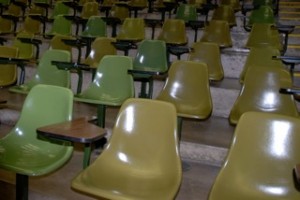The Numbers Game
Do I care about university rankings? Hmm. As I wrote the first draft of the Faculty of Arts Strategic Plan, (“A Place and Promise for Arts” – more about this soon), I included a page on our various rankings and how to understand them. I encountered some understandable criticism: rankings are imperfect, based on suspect weightings of criteria, and they vary quite a bit from list to list. They can be viewed as superficial and competitive. But I argued that people (prospective students and their families, faculty hires, the public and government) read these and they make an impression. So I’ve always thought it was better to engage with the rankings, try to improve them, and live with the consequences. I just don’t think it’s the right strategy to ignore them.
The recent ascent for UBC to #22 in the Times Higher Education (T.H.E.) World University Rankings constitutes an impressive recognition for UBC. Having become the most research-intensive university in Canada (measured by the amount of Tri-Council grants per research faculty member), UBC has also emerged as the one major Canadian research university making considerable gains over time in the T.H.E. rankings. This reflects a dynamism and a restless spirit of self-improvement that I’ve encountered in my one year here at UBC, and so I think T.H.E. has gotten it about right.
I’ve always advocated for institutions like ours to stay hungry – there’s no more dangerous attitude for a university to adopt in the contemporary world than self-satisfaction and complacency. Following the death of Apple co-founder Steve Jobs, his 2005 commencement address at Stanford University was widely circulated and read. To conclude, he cited the final two sentences from the seminal Whole Earth Catalogue by Stewart Brand: “Stay Hungry. Stay Foolish.” (see the entire text and a video of the speech at http://news.stanford.edu/news/2005/june15/jobs-061505.html). This is just as great advice for a university as it is for an individual. It might be redundant, but we could add: “Stay nimble.”
There are lots of ways to slice and dice these numbers. The T.H.E. rankings make it clear that there are three great Canadian universities that stand in a class by themselves: University of Toronto (18), UBC (22), and McGill (28). Other very strong universities (McMaster [65], Alberta [100], and Montréal [104]) constitute a second tier, with Queens (173), Victoria (177) and Ottawa (185) rounding out Canada’s entries in the top 200 global universities, according to T.H.E.. In Canada, west of Ontario, UBC is the main game in town.
Another way of looking at the rankings is to consider how UBC stacks up against its principal “competitor” universities, the top tier of North American public research universities. And here we look even more impressive, coming up at # 5, following UC Berkeley, UCLA, Michigan, and Toronto. So here’s an upstart Canadian university outpacing the venerable American state flagship universities such as Wisconsin, Washington, Virginia, and Texas. Interestingly enough, UBC finds itself on a major upward trajectory despite historically meager funding. Speaking of which, I tried to explain our funding model last spring to an American professor who was visiting as part of an external review team. After I described our tuition and provincial grant, he asked, “So where do you get your funding?” “That is our funding,” I replied.
In the end, what does a number like 22 it mean for us? First of all it means that our students and their families can expect that an investment in a UBC education and degree will be recognized and valued worldwide. Second, it means that any faculty member looking for a great home to teach, pursue their research, and have an effect on the world can be additionally reassured that she or he will find it here. These kinds of rankings, sustained over time, produce subtle, positive shifts in applications, faculty recruitment, and in confidence. I’ve been in other institutions that were obsessed with being “world class”. What I like about UBC is that we focus on what we do best and just do it, and that we don’t obsess about it. Now that we’ve looked at the numbers, we can get back to the task at hand – making this a great place to learn, teach, research, and produce positive change in the world.
And after all, a number like 22 gives a lot of room to grow and stretch – it allows elbow room for aspirations and support for staying hungry — and that’s a good thing.

October 31st, 2011 at 1:22 pm
Hello Gage,
I liked this. But will you gamble and do a similar piece on the rankings by department – or the comparison of Social Science and Humanities with other Faculties?
I appreciate your blogs. I particularly liked the serindipity one. I have on the side of my filing cabinet a magnet with the quote from John Lennon, “Life is what happens when you are making other plans.”
Do you get much feedback on these? Take care.